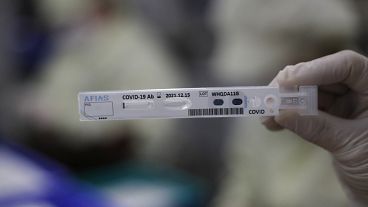Receptors in the oesophagus lead to the release of serotonin when ‘good quality food’ is consumed, researchers say.
A new study carried out in flies has found that swallowing may be a key control circuit that tells their brains to release serotonin.
The team from the University of Bonn in Germany and the University of Cambridge in the UK conducted a study on fruit fly larvae that have the advantage of having fewer neurons: about 10,000 to 15,000 compared to the 100 billion in the human brain.
The study published in the journal Current Biology found that special sensors in the larvae’s oesophagus triggered a release of serotonin, the hormone associated with pleasure when they swallowed food.
This mechanism encouraged continued eating.
“We wanted to gain a detailed understanding of how the digestive system communicates with the brain when consuming food,” Michael Pankratz, a professor at the University of Bonn, said in a statement.
“In order to do this, we had to understand which neurons are involved in this flow of information and how they are triggered,” he added.
Link between receptors in the oesophagus and the brain
Researchers mapped the neural circuits that connect the fruit fly's digestive system to the brain but also the connections between the different neurons, using advanced imaging technology and three-dimensional images.
They found that special receptors in the oesophagus can detect when food is swallowed and send signals to a group of six serotonin-producing neurons in the brain.
“They can detect whether it is food or not and also evaluate its quality,” said the study’s lead author Dr Andreas Schoofs from the University of Bonn.
“They only produce serotonin if good quality food is detected, which in turn ensures that the larva continues to eat”.
Although the study was done on fruit flies, scientists believe that humans may have a similar system but researchers highlighted that more research is needed.
“We don’t know enough at this stage about how the control circuit in humans actually works,” Pankratz said.
“There is still years of research required in this area”.















